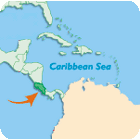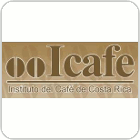Plant breeding programs in Costa Rica
 Located only about eight degrees north of the equator, Costa Rica enjoys a tropical climate year-round. Even if declining, agriculture in Costa Rica remains an active sector of the economy, and is characterized by the production of a wide range of crops. Coffee, rice, wheat and sugar cane are the most important ones.
Located only about eight degrees north of the equator, Costa Rica enjoys a tropical climate year-round. Even if declining, agriculture in Costa Rica remains an active sector of the economy, and is characterized by the production of a wide range of crops. Coffee, rice, wheat and sugar cane are the most important ones.
Research on plant genetic improvement initiated in Costa Rica approximately 50 years ago. Nearly 60% of the research is done in different experimental stations or research centres of the University of Costa Rica. Thirty-four percent is conducted by companies dedicated to flower production, and the remaining 8% corresponds to the research done by an institute dedicated to the culture of coffee -- ICAFE.
Plant breeding began with the crop of greatest economic importance for the country at the time -- coffee. Later, and in association with the creation of the public universities, other crops have been the subject of breeding programs, among them: maize, rice, potato, cocoyam, yams, sweet pepper, papaya, pejibaye, sugarcane and beans. The work consists of the evaluation of varieties developed in other countries or at international research centres like CIP and CIAT. The use of biotechnology, as tools for genetic improvement, is more recent
The major constraint of plant breeding in Costa Rica is of a political nature. Indeed, Costa Rica has historically depended on its agricultural production, but has paradoxically never had a policy to promote the development of plant breeding programs. Moreover, most of the institutions had financial difficulties in maintaining their research programmes and the distribution of the funds between the different crops is not equal: coffee and sugar cane receive the lion’s share of the resources, whereas the other crops struggle with an insufficient budget.
Research and education institutes with activities in plant breeding
Public Institutes
|
|
Research Centre for Molecular and Cellular Biology - Centro de Investigación en Biología Celular y Molecula (CIBCM)
|
|
|
Agricultural Research Centre - Centro de Investigaciones Agronómicas (CIA)
|
|
|
Laboratory of Biotechnology - Laboratorio de Biotecnología en Biología (BIOLOGIA-UCR)
|
 |
National University - Universidad Nacional de Costa Rica (UNA), Escuela de Biología
|
Public/Private Institute
 |
Coffee Institute of Costa Rica - Instituto del Café de Costa Rica(ICAFE)
|
Private Institutes
 |
SAKATA Seed
|
|
|
Division of Sugarcane Research - División de Investigación en Caña de Azúcar (DIECA)
|
______________________________________
Information by Dr Francisco Saborío Pozuelo, Dr Arturo Brenes Angulo (2005) - Information based on the Costa Rica's full report from the PBBC survey. Last revised 31-07-2009, GIPB




